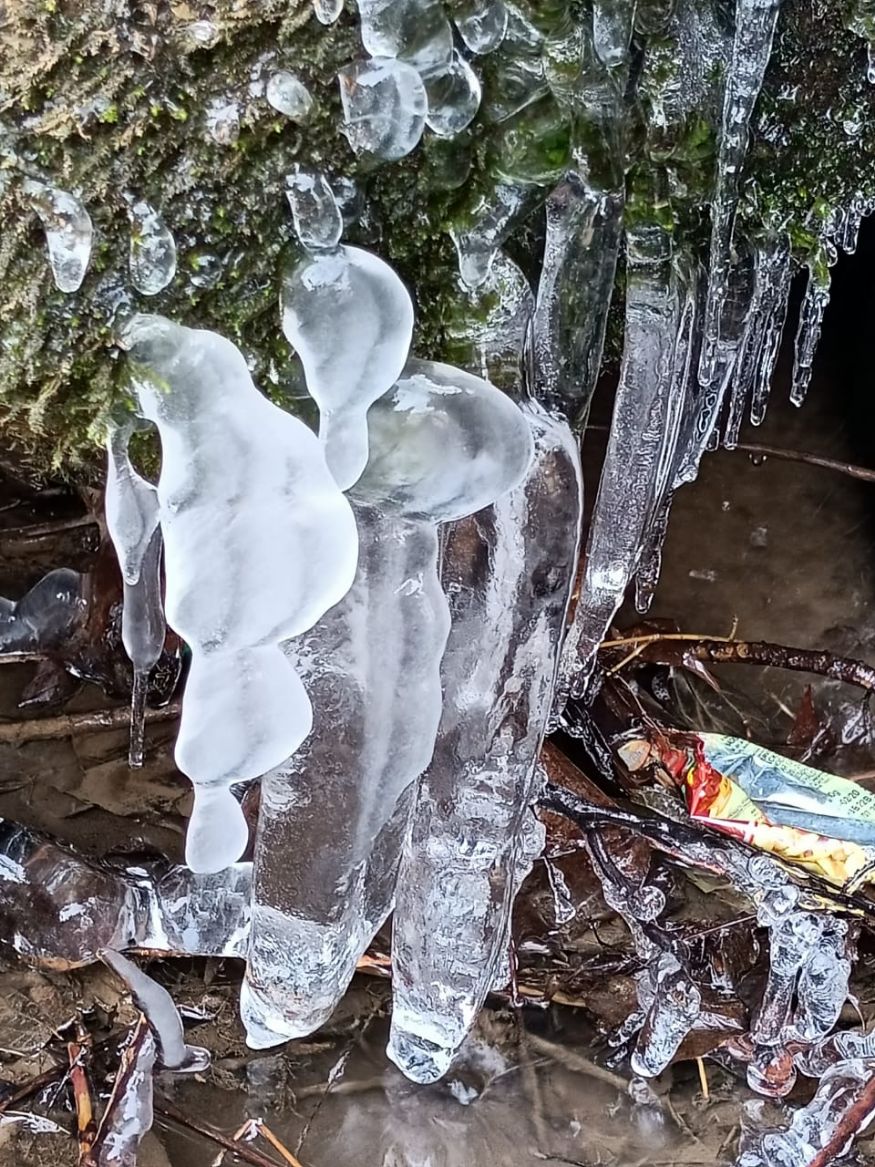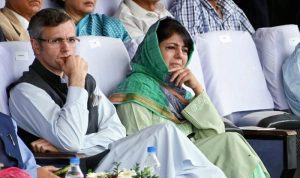
Winter’s Wrath Unleashed: Kashmir Welcomes Chilla-i-Kalan with Frigid Temperatures
-
Chilla-i-Kalan: Valley Braces for 40 Days of Frigid Majesty
-
Chilla-i-Kalan’s Waning Warmth: A Glimpse into Kashmir’s Lost Winter Magic
Kashmir, a land of breathtaking beauty, prepares for a different kind of spectacle – Chilla-i-Kalan, the 40-day period of harshest winter, beginning December 21st. As temperatures plummet and the mercury dances around freezing, the valley transforms into a wonderland of sparkling frost and biting winds.
This year, winter’s arrival seems particularly eager. Even before Chilla-i-Kalan officially begins, Srinagar shivered at -4.4°C, a frigid breath compared to the previous night’s -3.7°C. In Pahalgam, the temperature dived to a bone-chilling -6.3°C, while Gulmarg, the famed ski resort, settled at -4.4°C. The crisp air carried whispers of winter further as Qazigund, Kokernag, and Kupwara recorded icy temperatures too.
With the weatherman promising dry but even colder days ahead, Kashmiris brace for the harsh realities of Chilla-i-Kalan. Water bodies turn to shimmering crystals, pipes groan under icy grip, and electricity, already a fickle friend, becomes even more precious. In these moments, tradition steps in. Earthen ‘kangris’, filled with glowing embers, offer warmth to huddled bodies, while thick woolen ‘pherans’ become shields against the wind’s bite.
Also Read | Millions in Bloom: Kashmir’s Tulip Garden Prepares for Dazzling Display with 17 Lakh Flowers
But Chilla-i-Kalan is not just about hardship. It is a test of resilience, a time for community, and a season of quiet beauty. Children build frosty snowmen, laughter echoing in the crisp air, while families gather around crackling fires, sharing stories and songs passed down through generations.
And although Chilla-i-Kalan is the “big winter,” it’s not the only one. Even after 40 days, the cold lingers, morphing into “Chillai-Khurd” for another 20 days, followed by the “baby cold” of Chillai-Bachha for 10. In all, Kashmir endures 70 days of winter’s embrace, a challenge accepted with stoicism and a touch of wintry mirth.
So, as Chilla-i-Kalan approaches, casting its frosty breath across the valley, remember it is not just a challenge, but a unique chapter in Kashmir’s story, a time of both hardship and heartwarming beauty. It is a season that paints the valley in crystalline silence, a reminder of nature’s raw power and the unwavering spirit of those who call this frozen wonderland home.
For generations, Kashmiris have embraced Chilla-i-Kalan, the 40-day period of harsh winter, not with dread, but with a quiet anticipation. It wasn’t just a season of biting winds and icy landscapes; it was a time for family, tradition, and a unique rhythm of life. This, however, is a story etched in the memories of elders like 78-year-old Zareef Ahmad Zareef, a renowned poet and historian.
For him, Chilla-i-Kalan wasn’t merely a meteorological event; it was a vibrant tapestry woven with laughter, warmth, and resilience. Summers were spent diligently storing provisions against the coming cold. As snowfall blanketed the valley, transforming roads into white arteries, a different pace of life set in. Under the soft glow of oil lamps, families huddled together, sharing stories and songs passed down through generations. Homes, built with mud, brick, and wood, held in the warmth of traditional cooking stoves and “hamam” rooms heated by firewood.
Food, too, took on a different character. “Hookh Sioon,” sun-dried vegetables with an extended shelf life, graced every table. Occasionally, the aroma of “Hogge Gaade,” smoked fish, would fill the air. These weren’t just meals; they were symbols of self-sufficiency and community.
Also Read | Kashmir: The Rising Star of Destination Weddings
Zareef recalls a time before modern amenities, when winter tested Kashmiri ingenuity. Water sources lay frozen, requiring the melting of snow for every sip. Cozy “kangris,” earthen firepots filled with embers, became cherished companions, offering warmth against the biting cold. Even the harsh realities of frozen pipes and snow-laden rooftops were tackled with a collective spirit.
For Zareef, Chilla-i-Kalan wasn’t just a Persian word meaning “big cold”; it was a legacy carried from the pre-Islamic era, known then as “Sishar Maas.” With the arrival of traders from Central Asia in the 13th century, it adopted its familiar name. Beyond the biting winds, it marked a period of intense creativity. Confined within their homes, artisans wove intricate carpets, crafted delicate Pashmina shawls, and breathed life into wood with their artistry.
He reminisces about venturing out only to clear snow from rooftops or procure the winter delicacy, “Harissa,” from Aali Kadal. Food, then, wasn’t just sustenance; it was a shield against the harshness of the season. Lentils, meat, and spices were believed to bolster defenses against winter’s chills.
Also Read | Kashmir ranked as the second-best summer tourist destination in India: Survey
For children, it was a time of wonder, filled with folktales whispered by grandparents around crackling fires. In Zareef’s eyes, however, there’s a melancholic pang. Modernity, he rues, has chipped away at this winter magic. Dependence on external supplies makes the closure of highways a daunting prospect. Gone are the days of self-sufficiency, where every household brimmed with the warmth of community and resilience.
Chilla-i-Kalan, once a celebration of family, tradition, and winter’s unique beauty, now reflects a loss of cultural and environmental moorings. Zareef’s story is a poignant reminder of what we’ve lost, a call to rediscover the spirit of community and self-reliance that once gave this harsh season its warmth. In preserving our roots, perhaps we can rekindle the magic of Chilla-i-Kalan, not just for ourselves, but for generations to come.

